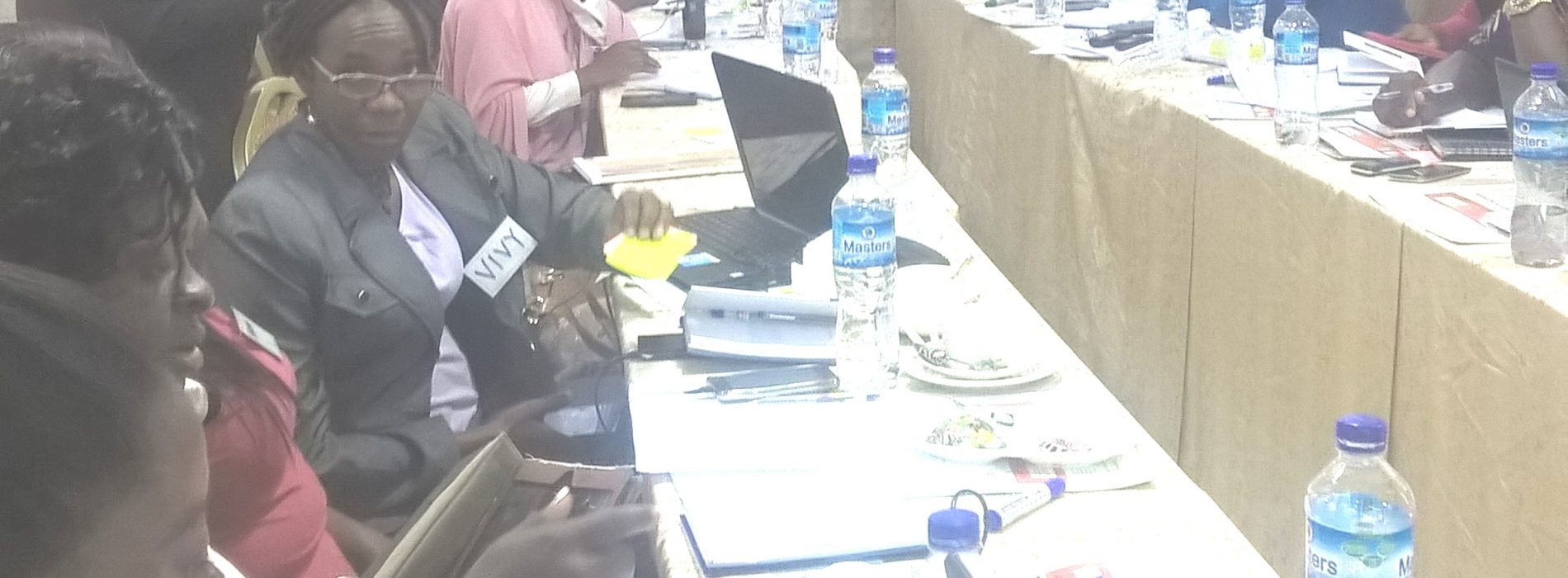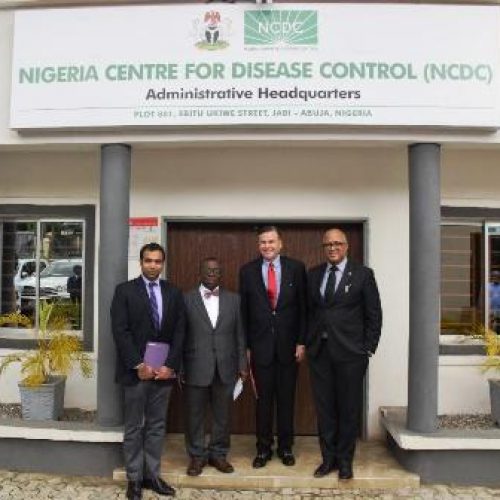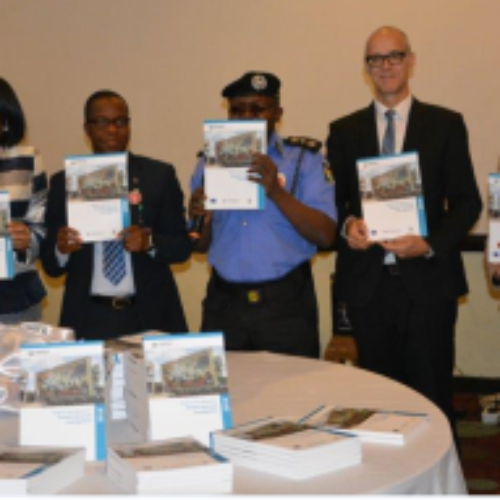DECVOMS trains journalist on Family Planning
From research, statistics have proven that a woman’s lifetime risk of dying from pregnancy or childbearing-related in Nigeria is one in three women. Under five mortality rate, that is probability of dying between birth and exactly five years of age expressed per 1, 000 live births.
Sadly also, maternal mortality which is the death of a woman while pregnant or within 42 days of termination of pregnancy, irrespective of the duration and the site of the pregnancy, from any cause related to or aggravated by the pregnancy or its management, but not from accidental or incidental causes and maternal mortality ratio shows 576 per 100, 000 live birth. In simple terms, five women die in every hour whereas 110 die every day.
The percentage of women who are currently using, or whose sexual partner is currently using, at least one method of contraception also known as national contraceptive prevalence rate, CPR, regardless of the method used is just 15.1%.
These outrageous figures formed the bases on which Development Communications Network, (DEVCOMS) gathered journalists from across Lagos few days back to teach them on how to write compelling stories on family planning that are capable of changing the ugly trend.
Speaking to the participants, Omobonike Adebayo, Programme Officer for DEVCOMS said these unnecessary deaths are preventable; that the evil trend can be changed through media intervention. She maintained that awareness has a great influence on family planning uptake, saying that most people are not properly informed about the various methods available, where to get the services and most especially the benefits of family planning therefore, and exposure to media messages on family planning can adequately help out.
One of the facilitators of the event, Miss Oluwakemi Obatoyinbo, Program Associates Operations for Nigerian Urban Reproductive Health Initiative, NURHI, who co-presented one of the segments of the training along with Dr. Edun Omasanjuwa, NURHI State Team Leader, Lagos Field Office, said family planning is the voluntary practice of controlling the number of children in a family and the intervals between their births, particularly by means of artificial contraception or voluntary sterilization. “It may also be defined as a conscious and deliberate determination of family size and pregnancy spacing through the utilization of a chosen method or methods of contraception,” Obatoyinbo explained.
Furthermore, Dr. Omasanjuwa threw more light on the benefits of family planning saying that it reduces maternal and child mortality; helps prevent unwanted pregnancies and unsafe abortions. “It has been found to promote gender equality as well as promote educational and economic empowerment,” he said.
Dr. Omasanjuwa lamented that despite the enormous benefits of family planning services, the uptake of the service remains low in the country. This he said has resulted into high rates of unwanted pregnancies, unplanned deliveries, unsafe abortions and mortalities in the country.
He however noted some of those factors affecting the use of family planning such as accessibility and availability. “Accessibility is the quality of being able to be reached or entered. It is the quality of being easy to obtain or use. It is also the extent to which a consumer or user can obtain a good or service at the time it is needed. Such factors are: cost, unavailability of services, quality of service: provider bias, attitude and poor technical knowhow, myths and misconception, social norms, culture and tradition and religion.
“Availability is the quality of being able to be used or obtained, it is whether someone or something can be accessed or used. It is also the extent to which resources are available to meet an individual or a projects needs. Such factors are weak policy environment for family planning, dearth of health service providers, disproportionate number of service providers that can provide all range of methods, poor/defective supply chain system, poor funding for family planning services, procurement of commodity to match demand, procurement of consumables, training and re-training of service providers, monitoring, evaluation & supervision.
Commenting on the current contraceptive prevalence rate in Lagos State, Dr. Omasanjuwa said: “Currently in Lagos state, we have as at the last NDHS we had about 48%. However, in the last three years, from 2013 to 2016, we saw an increase of about 3.6% in the number of women who use any modern method. So we have moved from 26% and by 3% we are about 29/30% of people who are using modern family planning method in Lagos. The target for Lagos State, we are looking to increase CPR from married women who are currently using any method regardless of the type from 48% to 74%,” he said.
However, Dr. Omasanjuwa said the major factor hindering family planning access in the country is enormous but for Lagos State, “research has shown that a lot of people have religious reasons why they don’t obtain family planning. In as much as we have service providers and all of the healthcare centers in Lagos state, people are still not taking up family planning services because of reasons such as the fear of side effect, the religious biases and cultural reasons that has happened to be around for a long time which are the reasons for these barriers limiting people from benefiting or enjoying the benefits of family. From our landscaping for Lagos State, what came up top was fear of side effect, religious barriers and cultural biases as well,” he pointed.
He however debunked claims by many that consumables for family planning are not always available in the Primary Healthcare Centers in Lagos State. “To the large extent they are free. According to last survey that was done to access the availability of commodities in Lagos state as at 2016 showed that in the facilities that were accessed, over 80%/close to 100 or 90% of them have availability of IUDs, about 80% have implant, over 90% have injectables, over 90% have pills and condoms, only a few of them recorded stock out for implants, injectables, pills and condoms.
“So, as far as Lagos is concerned to a very large extent, there are wide range of commodities available at the facility levels but we still have pockets of facilities where we still records stock out which the government is trying and doing a lot to actually sanitize the system whereby the supply chain system is made effective,” he explained.
Mrs. Ifeyinwa Victor-Uadiale also from NURHI who talked on the topic: Family Planning; the Catch, Choices and Challenges in Nigeria, talked on sub topics like: Levels of choice, demand & supply challenges and the catch to family planning. She however, explained contraceptive methods one can use saying that there must Medical Eligibility Criteria (MEC) wheel. “The MEC wheel contains the medical eligibility criteria (based on World Health Organisation’s evidence based guidelines) for starting use of contraceptive methods. It guides family planning providers in recommending safe and effective contraception methods for women with medical conditions or medically-relevant characteristics. The wheel includes recommendations on initiating use of nine common types of contraceptive methods,” she explained.
Giving the enormous benefits of family planning and the myths around it, Mrs Victor-Uadiale urged the participants to help make family planning attractive by downplaying the side effects and promoting the benefit. “Make the potential beneficiaries to meet qualified service providers to discuss side effect and make them know that public health facilities offer the services,” she said. She also wants journalists to make the public log on to radio jingles to correct some of the misconceptions and myths around family planning.
However, to for the participants to achieve the above objectives, Mr. Bolaji Adepegba, media consultant who also facilitated the training dissected the tool for telling family planning stories; saying that for one to write story on family planning, one must observe the following: “Determine to change someone’s behaviour, suck in the audience with your intro, do your draft, employ simple generally comprehensible words, vary your sentence style that is move in and out of simple, compound and complex sentence and so on,” he said.
Mr. Adepegba however, charged journalists to bring or write compelling stories that will showcase consequences of not adopting family planning, government’s inaction which indirectly cause maternal death. He also wants journalists to write stories on how billions could be spent on prevention measures instead of curatives.
About author
You might also like
US Ambassador visits NCDC
• says centre is a model for Africa The United States Ambassador to Nigeria, Mr. Stuart Symington, today, September 10, commended the Nigeria Centre for Disease Control (NCDC) for being
Facts you should know about Zika virus infection, Zika fever
What is Zika virus infection? Zika virus infection is caused by the bite of an infected Aedes mosquito, usually causing mild fever, rash, conjunctivitis, and muscle pain. The virus was
UNODC launches new Nigeria Handbook on counter-terrorism investigations
The United Nations Office on Drugs and Crime (UNODC), working in conjunction with the European Union and the Nigeria Police Force on Friday, November 15, launched a new Handbook on








0 Comments
No Comments Yet!
You can be first to comment this post!